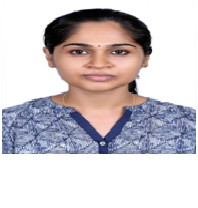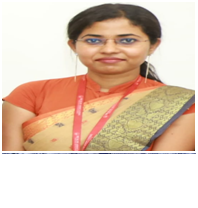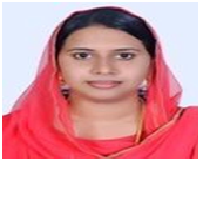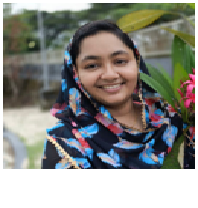The department offers UG and PG Courses which are designed to give students both theoretical and practical knowledge in all frontier areas of Electronics and Communication.The department has been conducting M Tech course in Microwave & TV Engineering (2 Years) since 2011 onwards. The curriculum of B.Tech - Electronics and Communication is designed to give adequate emphasis on the Analog and Digital processing of information for efficient communication. The core program is supplemented and further reinforced by a well-chosen set of elective courses permitting the students to specialize either in the software or the hardware aspect of Communication. The Department of Electronics and Communication, started in the year 2002, aims to educate students from different cultural, social, economic and geographical locations, so that they become enlightened individuals, improving the living standards of their families, industry and society by providing individual attention. The department of ECE shares the mission and vision of the institute in imparting quality education to the students. First, it is ensured that the students perceive the electronic fundamentals thoroughly. Then, while fulfilling the requirements of the syllabus prescribed by the University, the course goes much further and offers students the opportunity to work on diverse hardware and software platforms. Students are encouraged to join professional society with a view to improving communication skills and technical knowledge. The curriculum of B.Tech - Electronics and Communication is designed to give adequate emphasis on the Analog and Digital processing of information for efficient communication. The core program is supplemented and further reinforced by a well-chosen set of elective courses permitting the students to specialize either in the software or the hardware aspect of Communication. The Department of Electronics and Communication, started in the year 2002, aims to educate students from different cultural, social, economic and geographical locations, so that they become enlightened individuals, improving the living standards of their families, industry and society by providing individual attention. The department of ECE shares the mission and vision of the institute in imparting quality education to the students. First, it is ensured that the students perceive the electronic fundamentals thoroughly. Then, while fulfilling the requirements of the syllabus prescribed by the University, the course goes much further and offers students the opportunity to work on diverse hardware and software platforms. Students are encouraged to join professional society with a view to improving communication skills and technical knowledge.
The curriculum of Electronics and Communication Engineering Department at MACE is intensive, contribute hands on to give students a holistic view of the ever developing and innovative field of Electronics. One of our prime objectives is to explore subjects critical to advancement in today’s high-tech society with the aid of sophisticated laboratories and high end research facilities in support of top class faculties. Besides, we motivate students in skill-development programmes by working hand in hand with various organizations and the On-campus Industrial Incubation centre. Moreover, students and faculty of ECE Department work together in real world research environments particularly in collaboration with Cancer Imaging Modalities of KIMS Group of Hospitals.

Associate Professor and Vice Principal

Associate Professor & HOD

Associate Professor

Asst. Professor

Asst. Professor

Asst. Professor

Asst. Professor

Asst. Professor

Asst. Professor



Labs with modern machineries make this course useful for students in becoming good civil engineers.
The ultimate aim of the lab is to make the students familiarized with various electronic components, devices and equipments. The lab also has emphasis on soldering practices in the construction of Printed Circuit Board (PCB).
The primary objective of the lab is to serve as a platform for understanding the operating principles of electronic devices through experiments and also to study their characteristics. The students are trained in designing, implementing and testing the analog electronic circuits.
The students design components for analog and pulse circuits. They construct the circuit and test them to study the impact of various design parameters and compare their performance.
The primary objective of the Communication Engineering lab is to familiarize the students with all analog communication systems. The students conduct experiments to modulate as well as to demodulate the signals using different modulation techniques. The Communication Systems lab focuses on various digital communication techniques at hardware level as well as software levels using simulation languages like MATLAB, Simulink and so on.
The main aim of the lab is to serve as a platform for designing sequential and combinational logic circuits and the study of various timer circuits. Today, digital electronics are applied in many diverse areas such as telephony, data processing, RADAR, navigation, military system and many more.
In view of the impact of this new technology in recent years, the laboratory has organized and provided support to courses strictly related to microcontrollers and also programming related to real time system. It includes programming interfaced with ADC, DAC and Stepper motors.
The lab focuses on the features and programming of 8085 and 8086 microprocessors and also involves familiarization of various interfacing experiments like keyboard, ADC, DAC and much more.
Various experiments are conducted on Microwave test benches in X band. The lab includes various characteristic study using microwave sources like Klystron oscillators and Gunn diode. The experiments involve studying of varying losses using different wave guides and frequency measurements using several microwave antennas like horn antenna.
In optical fiber communication, lab experiments are conducted on how light is used to transmit information on a fiber optic link. It is done by using LASER as well as LED sources in single mode and multimode optical fibers. By using suitable experimental kits, Numerical Aperture and V-number as well as several losses like attenuation and dispersion losses of any optical fiber can also be measured. The advanced OTDR set up is available in the lab for conducting the experiments to locate the fault in the fiber and also for doing the experiments related to WDM.
The primary objective of the lab is to serve as platform for understanding the operating principles of Power electronic devices through experiment and also to study their characteristics. The students are trained in designing, constructing and testing the power electronic circuits using SCR, MOSFET, TRIAC, IGBT, POWER BJT and LDR.
Digital signal processing Lab emphasizes the study and processing of various signals using digital techniques. The experiments are conducted using simulation language like MATLAB and Simulation Tool such as SIMULINK. The experiments with DSP kits using Virtual Lab setup called LABVIEW are also conducted.